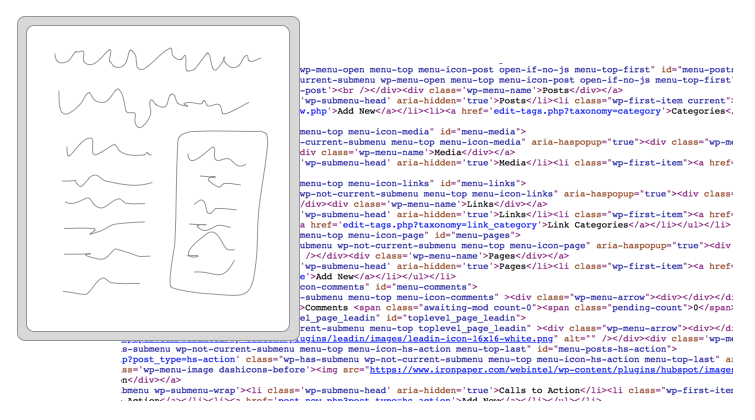
A successful search engine optimization (SEO) strategy involves different tactics across your digital marketing mix. Some SEO tactics include content marketing, blog publishing, and technical SEO (such as ensuring that your website is fast and high-performing.)

In order to rank in Google search results for your keywords of choice, you need to use all of these tactics. But arguably the most important thing you can do is build many SEO pages, and organize the rest of your content around them.
An SEO page is a website page that is targeted for a specific keyword. Its main goal is to bring in website traffic for a specific term and convert visitors into leads. An SEO page should be closely aligned with your business and what you do.
SEO pages can be used to build keyword clusters and center your linking strategy around one main destination. You can think of an SEO page as a "centerpiece" of a topic/content cluster.
Google, Bing, and other search engines need to see that you are publishing content to your website regularly. This is why many digital marketing teams spend resources on a blog, which they publish to quite frequently. But you should also build SEO pages to rank in search and tell the search engines what you're all about.
SEO pages serve a really important function in your marketing strategy. Think of a wheel with one main hub and many surrounding spokes. The "hub," in this case, is an SEO page. The "spokes" are blog posts, which all point links to the SEO page for that topic.
This linking structure tells Google and other search engines that your "center," or your SEO page, is the most important. This helps you avoid competing pages and gives you one central focus for driving leads around each keyword cluster.
SEO pages are often the most strategic at the center of a topic, or content, cluster. The SEO page should have the most important, high-volume keyword as its focus. And then, you should link other keyword variations and related ideas back to this centerpiece.
Here's an example. If your SEO page keyword target is "IT service management," you might have SEO-friendly blog articles linked to it, including:
All in all, you're building a topic cluster around "IT service management" and showing Google that you have plenty of other content to support it. Google then sees that you have some authority around this topic, and will reward you by increasing your ranking keywords for this term.
Google is smart enough to know when things are semantically related. In the example above, "IT service management" is used interchangeably with ITSM, for example. So don't worry too much about being rigid with your keyword choices. It's better to choose terms that make sense to your audience and closely align with your business.
Unlike blog posts, which are mostly for gaining website traffic and driving people elsewhere on your website, SEO pages are built for lead generation. This means you should include forms on all of your SEO pages so visitors can submit information and convert it into leads.
As a best practice, you will use your SEO pages as a destination point. So keep links minimal on your SEO pages, and consider removing your main website navigation from the template to keep your visitors focused on the conversion action. Remember, the goal is to bring people to the SEO page and to convert right there rather than leave it.
What is the pathway for people to visit an SEO page on your website? The major pathway is for someone to type in a keyword relevant to them into Google or another search engine. From there, they may click a search engine result page to visit a blog post of yours. Then, they will click a link to visit your SEO page and, hopefully, convert it into a lead.
Ideally, someone searches for a keyword and instead ends up directly on your SEO page. This can only happen if you have plenty of optimized content on the page for that key term, so Google can rank it in search. Then, the visitor will read the page’s content and hopefully be compelled to fill out the form and become a lead.
Here is a quick list of traits that make an SEO page successful:
Follow these best practices for an SEO page, and you can generate a new stream of digital business for your company.
by Jonathan Franchell, CEO of Ironpaper - For more tips and hacks: Need to remove a new line after h1 tags? Both web designers and SEO practitioners need to employ headline tags: H1, H2, H3 in several ways to improve web page structure and tag...

The marketing industry is transforming significantly due to generative AI and increasing market complexity. Gartner's prediction of a 25% decline in traditional search traffic suggests that the era of search engines is dying. AI tools, particularly...

The Crowded Arena of the IT Marketplace Updated December 2024 The Information Technology (IT) landscape is experiencing rapid growth and intensifying competition. IT spending is projected to reach nearly 5.1 trillion U.S. dollars in 2024, a...

Updated December, 2024 The field of digital marketing is evolving rapidly in response to new technology and changing buyer expectations. To help career-minded marketers, we’ve rounded up the top 10 skills needed to succeed in the field. These are...
